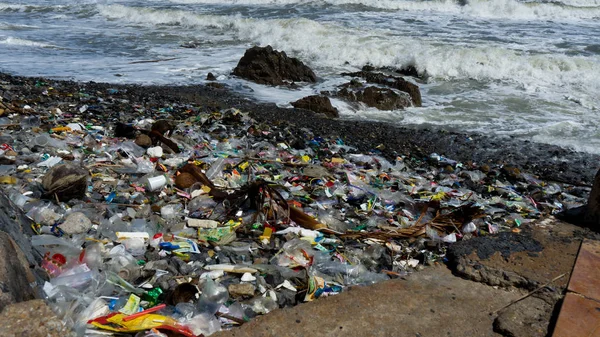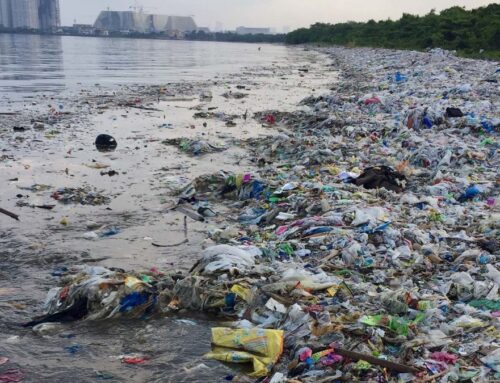In recent years, Ghana has taken significant strides towards environmental sustainability by implementing a ban on single-use plastic bags. This move signifies a crucial step in the fight against plastic pollution, encouraging individuals and businesses alike to adopt eco-friendly practices. In this article, we delve into the reasons behind the ban and explore the importance of avoiding plastics in Ghana.
The Ban on Single-Use Plastic Bags:
Ghana’s ban on single-use plastic bags, which came into effect in the year 2015, marked a pivotal moment in the nation’s environmental policy. The ban prohibits the manufacturing, importation, and distribution of plastic bags with a thickness of less than 20 microns. This decisive action was motivated by the alarming rate of plastic pollution in Ghana, which posed grave threats to ecosystems, public health, and livelihoods.
Environmental Impact of Plastic Pollution: Plastic pollution poses a severe threat to Ghana’s rich biodiversity and natural resources. From clogged waterways to choked wildlife, the environmental repercussions are far-reaching. Plastic waste not only mars the beauty of Ghana’s landscapes but also contaminates soil and water sources, endangering aquatic life and disrupting fragile ecosystems.
Health Risks Associated with Plastic Pollution: Beyond environmental concerns, plastic pollution also poses health risks to Ghana’s population. Single-use plastics, when improperly disposed of, can leach harmful chemicals into the environment, contaminating food and water supplies. Moreover, the burning of plastic waste releases toxic fumes, contributing to air pollution and respiratory illnesses among communities.
Promoting Sustainable Alternatives: The ban on single-use plastic bags underscores the urgent need to transition towards sustainable alternatives. Jute and cotton bags emerge as eco-friendly options that not only mitigate plastic pollution but also support local economies. These reusable bags offer durability and versatility, serving as practical alternatives to their plastic counterparts.
Community Engagement and Education: Central to the success of Ghana’s anti-plastic initiatives is community engagement and education. Empowering individuals with knowledge about the environmental impact of plastic pollution fosters a culture of sustainability. Through awareness campaigns, workshops, and grassroots initiatives, communities can embrace sustainable practices and reduce their reliance on plastic products.
Corporate Responsibility and Innovation: Businesses play a pivotal role in driving sustainable change by embracing corporate responsibility and innovation. By phasing out single-use plastics and adopting environmentally friendly packaging solutions, companies can demonstrate their commitment to sustainability while meeting consumer demand for eco-conscious products.
Is plastic the public enemy it is made out to be?
It is very complex to evaluate life cycles of materials, and in certain cases there is obvious plastic bashing, says Romane Osadnick, an account manager at Adelphe, a French non-profit company founded to reduce the impact of household packaging materials. Osadnick helps companies identify and calculate the emissions from their packaging to help to reduce them.
“Plastic can sometimes be the best option,” Osadnick says, “especially in the food industry. Film wraps and plastic bags that seal food like cucumber wraps preserve the quality of the food and are lightweight options.”
France recently banned the use of plastic wrapping in the food industry. When walking down the fruit and vegetable aisles of a French supermarket, you are now likely to see only loose items, with occasional Styrofoam nets wrapping exotic fruit (or plastic bags for larger quantities like bags of apples).
Will other countries follow suit? Personally, I have seen the amount of plastic wrapping in British supermarket decrease rapidly since arriving in London a year and a half ago, but smaller chain supermarkets still tend to offer little to no loose vegetable options.
In the end it often turns out to be more polluting to use cardboard wrapping than plastic, when the entire food production chain is taken into account – Romane Osadnick
The journey from the field to the supermarket or market stall requires packaging to protect the produce. So in France, cucumbers, which might once have been wrapped in clear plastic film, are now delivered to supermarkets in containers made of alternative materials. “Plastic is most commonly replaced with cardboard,” Osadnick says, “but food can be damaged more easily in cardboard causing more food waste in transport, and it weighs much heavier [which] means in turn that more lorries are needed to carry the same quantity of product. Transport weighs heavily in the life cycle of food. In the end it often turns out to be more polluting to use cardboard wrapping than plastic, when the entire food production chain is taken into account.” Though, to be able to prove in any one particular case that carboard is more costly, a life cycle assessment would be required.
Likewise, a life cycle assessment of single-use plastic, plastic “bags for life”, cotton and paper shopping bags found that cotton and paper had the highest negative impacts for measures like fossil fuel use.
There may be an appropriate time, then, to use plastic. Perhaps the problem is that we are accustomed to using plastic only once and discarding it. The prevalence of plastic waste has led to serious concerns about the effect it has on human health. Plastics leach a class of chemical called endocrine disruptors, which can block or change how hormones are used in our bodies. Plastics are sometimes coated with polyfluoroalkyl substances (PFAS) – often referred to as “forever chemicals” – which have been linked to several diseases.
Are there better examples elsewhere that could inspire alternatives? India, like much of the world, has an expanding plastic problem. Plastic waste per person doubled between 2016 and 2020.
SokoBags Limited, Pioneering Sustainability in Ghana’s Packaging Landscape
Since its inception in 2016, Soko Bags Limited has emerged as a trailblazer in Ghana’s sustainable packaging industry. Specializing in eco-friendly reusable bags crafted from ethically sourced materials like cotton and jute, Soko Bags has made significant strides in reducing the carbon footprint of individuals and organizations across the nation.
Championing Eco-Friendly Practices: At the heart of Soko Bags’ mission is a commitment to championing eco-friendly practices and reducing plastic pollution. By offering reusable bags made from natural, biodegradable materials such as cotton and jute, Soko Bags provides consumers with a sustainable alternative to single-use plastic bags. This proactive approach aligns with Ghana’s efforts to combat plastic pollution and preserve its natural environment for future generations.
Empowering Local Communities: Soko Bags’ dedication to sustainability extends beyond environmental stewardship to encompass social responsibility. The company prioritizes ethical sourcing practices, partnering with local artisans and cooperatives to procure materials and support livelihoods. Through these partnerships, Soko Bags not only promotes economic empowerment but also strengthens community ties, fostering a sense of pride and ownership among local stakeholders.
Driving Consumer Awareness: Soko Bags plays a crucial role in driving consumer awareness about the environmental impact of plastic pollution and the benefits of sustainable alternatives. Through educational campaigns, workshops, and social media engagement, the company educates consumers about the importance of reducing their reliance on single-use plastics and making eco-conscious choices. By empowering consumers with knowledge, Soko Bags encourages sustainable behaviors and fosters a culture of environmental responsibility.
Collaborating for Change: Soko Bags recognizes that meaningful change requires collaboration and partnership across sectors. The company actively collaborates with government agencies, non-profit organizations, and businesses to promote sustainable packaging solutions and advocate for policy changes that support environmental conservation. By working together, Soko Bags and its partners amplify their impact and drive positive change at a systemic level.
Measuring Impact and Progress: Since its inception, Soko Bags has made significant strides in advancing sustainability in Ghana’s packaging landscape. Through ongoing monitoring and evaluation, the company tracks its environmental impact, including carbon footprint reduction, waste diversion from landfills, and conservation of natural resources. By transparently communicating these metrics to stakeholders, Soko Bags demonstrates its commitment to accountability and continuous improvement.
Conclusion: Ghana’s ban on single-use plastic bags symbolizes a bold commitment to environmental stewardship and sustainable development. By embracing eco-friendly alternatives and raising awareness about the dangers of plastic pollution, Ghana is paving the way for a greener, healthier future. Together, let us heed the call to action, protect our planet, and preserve the beauty of Ghana for generations to come.
Soko Bags’ journey from a pioneering startup to a leading force in Ghana’s sustainable packaging industry is a testament to the power of innovation, collaboration, and social responsibility. By offering eco-friendly reusable bags made from ethically sourced materials, the company not only provides practical solutions to plastic pollution but also inspires a movement towards a more sustainable future. As Soko Bags continues to expand its reach and influence, it reaffirms its unwavering commitment to sustainability and leaves a lasting legacy of positive change in Ghana and beyond.




Leave A Comment